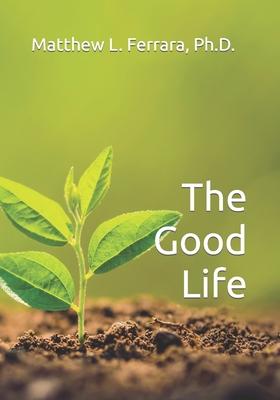
Hopefully, this is not just another self-help workbook. There are already so many self-help workbooks. You don't have to spend much time reviewing them to discover all the contradictions. How do you know which workbook got it right?
Do you put stock in the workbook by a famous author or an author you have read before? If you take this approach, you are taking the great person approach. You believe what you believe because a great person told you what to believe. In case you are wondering, the great person approach to knowledge is called faith.
It is nice to have faith in someone or something but that is not the way to build knowledge, especially about complex topics like emotions, relationships, thinking and self-management. The best way to build knowledge is to use the scientific method. There is a better chance that facts produced by the scientific method are more accurate than the opinions offered by a great person.
In this self-help workbook, the scientific method was the basis for lessons that address four important topics: emotional functioning, thinking, relationships and self-management. For example, research by Paul Ekman, PhD. and his colleagues provided the foundation for many lessons on emotions. Martin Seligman, PhD. and other positive psychologists provided the scientific foundation for the lessons on happiness and optimism. John Gottman, PhD. and his colleagues' research was used for many of the lessons on relationships. Check the Endnotes in this workbook for a listing of authors and researchers whose finings provide the basis for this workbook.
The goal of this workbook is to help you improve the quality of your life. Many people have already used this workbook and have said, "I wish I knew this information when I was growing-up." Whether you are fixing a personal problem or just trying to maximize your life, I hope this workbook can help you. Above all, enjoy your life.
Hopefully, this is not just another self-help workbook. There are already so many self-help workbooks. You don't have to spend much time reviewing them to discover all the contradictions. How do you know which workbook got it right?
Do you put stock in the workbook by a famous author or an author you have read before? If you take this approach, you are taking the great person approach. You believe what you believe because a great person told you what to believe. In case you are wondering, the great person approach to knowledge is called faith.
It is nice to have faith in someone or something but that is not the way to build knowledge, especially about complex topics like emotions, relationships, thinking and self-management. The best way to build knowledge is to use the scientific method. There is a better chance that facts produced by the scientific method are more accurate than the opinions offered by a great person.
In this self-help workbook, the scientific method was the basis for lessons that address four important topics: emotional functioning, thinking, relationships and self-management. For example, research by Paul Ekman, PhD. and his colleagues provided the foundation for many lessons on emotions. Martin Seligman, PhD. and other positive psychologists provided the scientific foundation for the lessons on happiness and optimism. John Gottman, PhD. and his colleagues' research was used for many of the lessons on relationships. Check the Endnotes in this workbook for a listing of authors and researchers whose finings provide the basis for this workbook.
The goal of this workbook is to help you improve the quality of your life. Many people have already used this workbook and have said, "I wish I knew this information when I was growing-up." Whether you are fixing a personal problem or just trying to maximize your life, I hope this workbook can help you. Above all, enjoy your life.
Paperback
$29.00